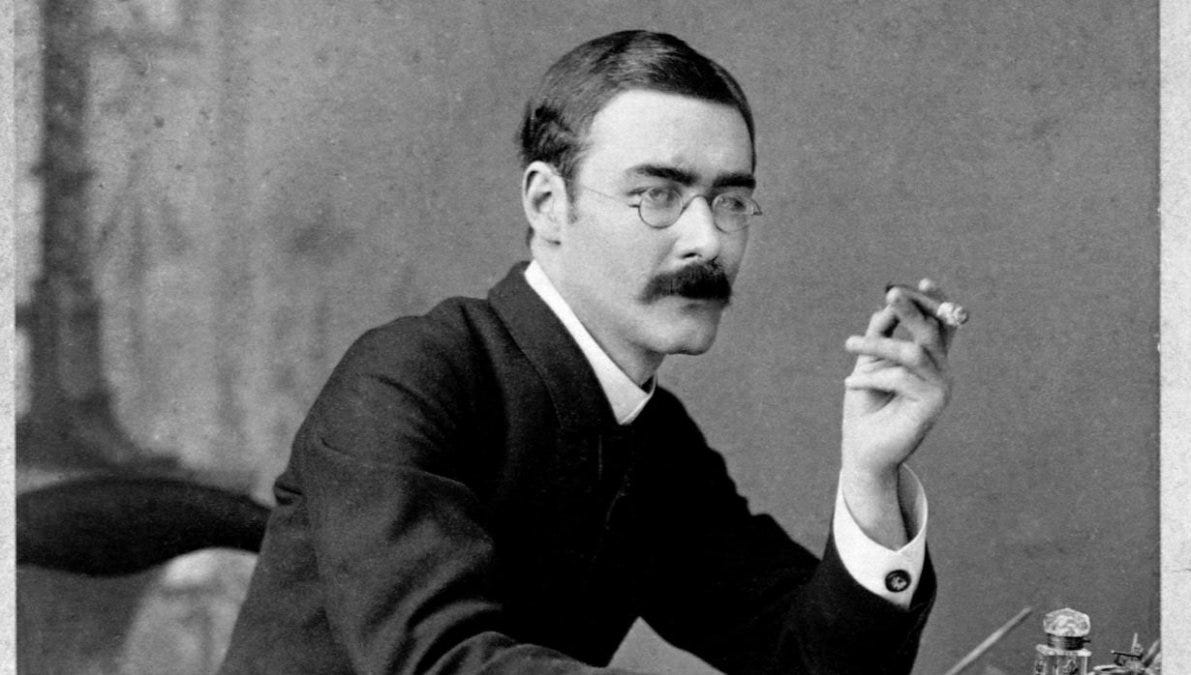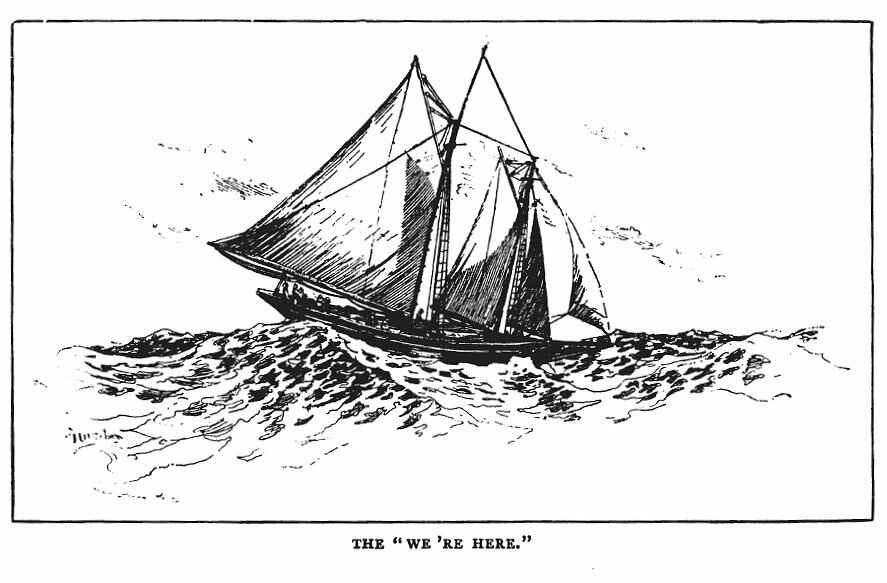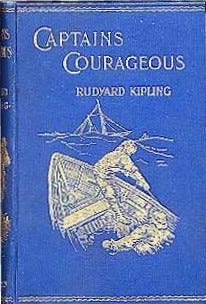Learning How To Be A Man: Captains Courageous - Rudyard Kipling.
A Boy's Rite of Passage From Childhood to Manhood.
Rudyard Kipling, English writer and poet, knew how to weave a good tale. One of his most famous poems, If, focuses on traits that turn a boy into a man. The poem begins, “If you can keep your head when all about you, Are losing theirs and blaming it on you,” then goes on to list a series of masculine virtues, and ends with, “Yours is the Earth and everything that’s in it, And—which is more—you’ll be a Man, my son!” The ideas are aspirational and worth having in the modern era.
This noble ideal of male behavior is incorporated in Kipling’s coming-of-age story, Captains Courageous. President Theodore Roosevelt, a consummate man’s man, favored Kipling’s writing.
The fifteen-year-old son of a railroad magnate is washed overboard from the deck of a cruise ship. A Canadian Grand Banks fishing schooner, We’re Here, rescues him. The boy flexes his elite status and family wealth in an attempt to return home, but to no avail. The ship’s captain, determined to haul in a profitable catch, won’t be dissuaded from fulfilling his mission. The teen reconciles with his situation and becomes a worthy member of the crew.
The beauty of Kipling’s story is its universality. All of us experience a transition from youth to adulthood. Most of us go willingly, while others battle against leaving the comfort of the nest. The ultimate question is: what is important in living a good life? The young man learns to value having the respect of men on the ship by contributing to the group’s effort—making a living from the sea.
The lesson: satisfaction and pride come from individual accomplishment of a job well done.
#
The writings of Rudyard Kipling, a Brit born in India, were very popular in his own time. His work is still available in the public domain, free online at Project Gutenberg, and in the many low-price reprints available from Amazon and other booksellers.
https://www.gutenberg.org/
Trilogies by Howard Feigenbaum:
Benny Goldfarb, Private “I”
Henry Samson: Finder of Wrongdoing (under pen name, H. F. Jefferson).
Children’s book: We’re All Nuts! Are happiness and self-acceptance connected?
Poetry: How to Cook A Turkey And Other Poems.







Oh, that we would aspire for such character attributes.